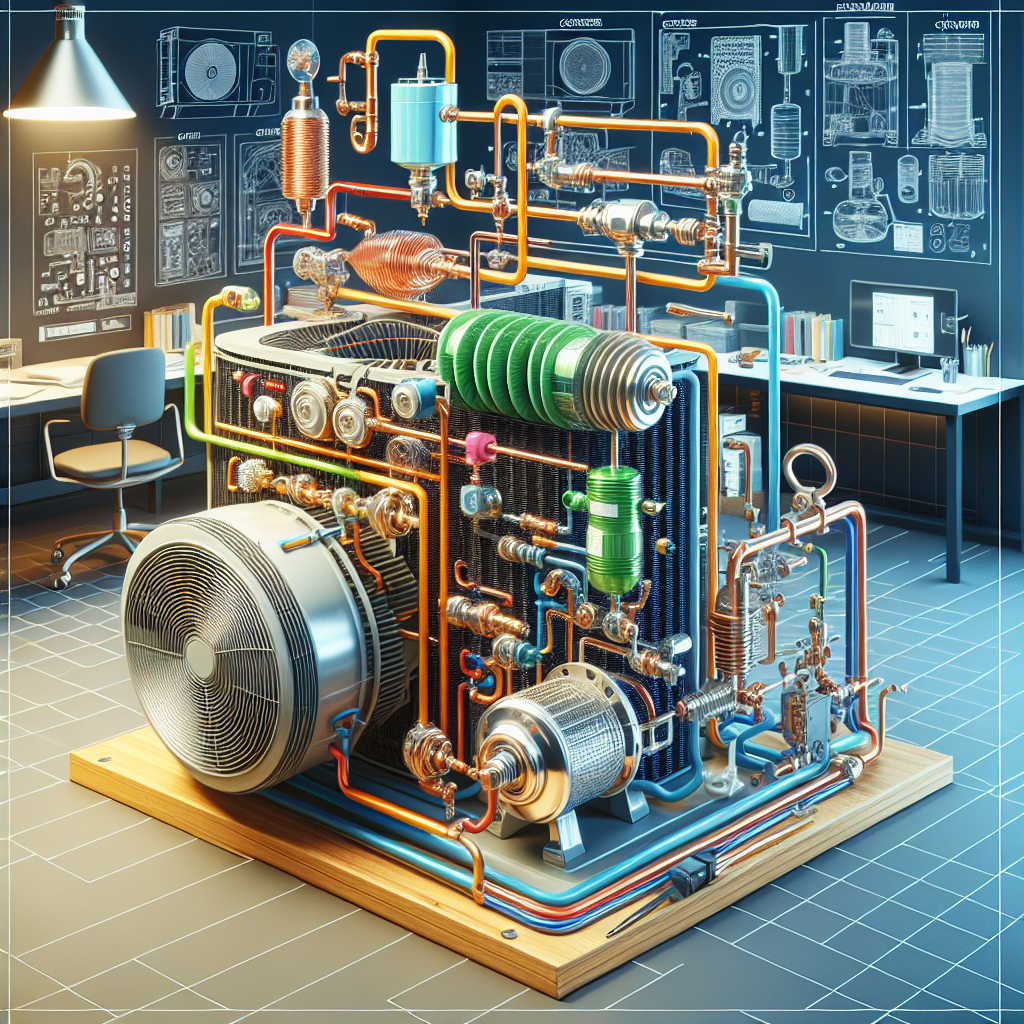Your cart is currently empty!
Understanding the Basics of Air Conditioning Systems

Air conditioning systems are a crucial component of any modern building, providing comfort and maintaining a healthy indoor environment. Understanding the basics of how these systems work can help you make informed decisions when it comes to installation, maintenance, and repair.
One of the key components of an air conditioning system is the compressor, which is responsible for circulating refrigerant through the system. The refrigerant absorbs heat from the indoor air and releases it outside, cooling the air in the process. The compressor also pressurizes the refrigerant, allowing it to cycle through the system efficiently.
Another important component of an air conditioning system is the evaporator coil, which is located inside the indoor unit. As the refrigerant passes through the coil, it absorbs heat from the indoor air, cooling it down. The cooled air is then circulated back into the room through ductwork or vents.
The condenser coil is located in the outdoor unit of the air conditioning system. It releases the heat absorbed from the indoor air, allowing the refrigerant to cool down and cycle back through the system. The condenser fan helps to dissipate the heat, ensuring that the system operates efficiently.
Air filters are also an essential part of an air conditioning system, as they help to trap dust, pollen, and other allergens, improving indoor air quality. It is important to regularly clean or replace the filters to ensure that the system functions properly and efficiently.
Thermostats are another key component of an air conditioning system, allowing you to control the temperature and humidity levels in your building. Programmable thermostats can help you save energy and money by automatically adjusting the temperature based on your schedule and preferences.
Regular maintenance is essential to keep your air conditioning system running smoothly. This includes cleaning or replacing air filters, checking for leaks or blockages in the ductwork, and ensuring that all components are functioning properly. It is also important to schedule regular professional inspections and tune-ups to prevent costly repairs and extend the lifespan of your system.
In conclusion, understanding the basics of air conditioning systems can help you make informed decisions when it comes to installation, maintenance, and repair. By familiarizing yourself with the key components and functions of these systems, you can ensure that your building remains comfortable and healthy all year round.

Leave a Reply